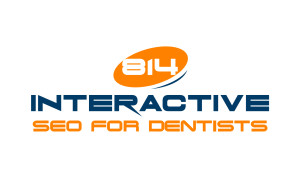Search engine optimization is sometimes viewed as this complicated marketing strategy, only for those who have been trained in the different techniques and methods.
And while getting help from a professional is a great way to make sure you have an effective strategy, SEO is not so complicated that the average person is not able to understand it.
Any professional who tries to tell you that search engine optimization is too difficult for the layman to understand is not a professional you want to give your business to.
Many people buy into this idea anyway, and handle their entire campaign over to a professional.
There’s nothing wrong with getting help.
Dental SEO can have a lot of moving pieces and many dentists and office managers simply do not have the time to do everything that makes an effective campaign.
There is something wrong with not independently evaluating and monitoring your dental SEO to make sure it is working.
But how do you do that?
How do you know if your search engine optimization is effective, especially in the early days of your campaign?
Here is how to tell if your dental SEO is working:
You Are Getting More Visitors through Organic Search
This is the most obvious way to tell if your dental SEO is working.
If you are seeing more visitors on your webpage, coming from your organic search listing, then your search engine optimization is probably working.
Of course, this isn’t as clear cut as it seems.
In order to tell if your campaign is working, start by looking in your metrics.
There are lots of tools for measuring visitors to your website—if you are working with a professional they have likely already installed one on your website.
Check that tool.
Does it say that you are getting more organic visitors than you were last month?
There is just about no other reason your clicks in search results would be up unless your SEO strategies have started to work.
Your Link Is Higher in Search Results
This might sound like the best metric of efficacy, but how we view ranking is starting to change as search engines like Google start to change the way that they present links to their users.
Search results are becoming more and more personalized as search engines learn more and more about their users.
Think back to the last time you got on Google and searched for a restaurant.
You were probably shown first a three-pack of restaurants in your immediate area, followed by listings for other local restaurants.
Google is not going to show you an article about the ten best restaurants in Los Angeles if you live in Philadelphia.
There are lots of different ways to rank and there are lots of different ways to measure your rank.
In general, however, a higher page ranking does mean that your SEO has taken effect.
A higher page rank should not be the only goal for your strategy, however, especially when it comes to dental SEO.
You do not want just increased traffic on your page, you want quality traffic.
You Are Getting More Calls and Patients
This is the true metric of whether or not your dental SEO is working—and it is also the most difficult to quantify, especially if you have implemented other marketing campaigns at the same time you started your SEO.
The final goal for your dental SEO campaign should be to get more patients.
If you already have plenty of patients, why bother trying to increase the traffic on your webpage and attract more people to your office?
A functional campaign will not just draw more people to your office’s webpage. It will also convince them to call you and make an appointment.
Is that really SEO’s job?
In fact, it’s really the entire reason that search engine optimization exists.
Too many people make the mistake of thinking that SEO is about trying to make your website better for web crawlers.
In reality, it should be about making your website better for the humans that arrive on that webpage.
Google and search engines like it have crafted their algorithms not to make it harder for your website to rank, but to ensure that searchers are presented only with websites that they will actually find useful.
When your website is useful, you rank highly.
When it is not useful, you may not rank at all.
This means that your content, first and foremost, should be created with your patients and potential patients in mind.
What do they want to read?
What will profit them?
Web design is equally important.
If you want to make sure that it is your SEO bringing you more attention, you can always ask your new patients how they heard about you.
If you do an intake interview or have them fill out paperwork before their initial appointment, add a question about how they found you and why they decided to make an appointment.
If you see more and more people marking that they found you through a search engine query, you will know for certain that your dental SEO is working.
Looking at these three aspects can be great for a dentist’s office that wants to make sure the work that they are paying a professional to do is actually paying off or that they work they are doing themselves is bringing them more patients.
Don’t be duped by the misconception that SEO is too difficult for you to understand—look at these metrics to see whether or not your SEO is working!




